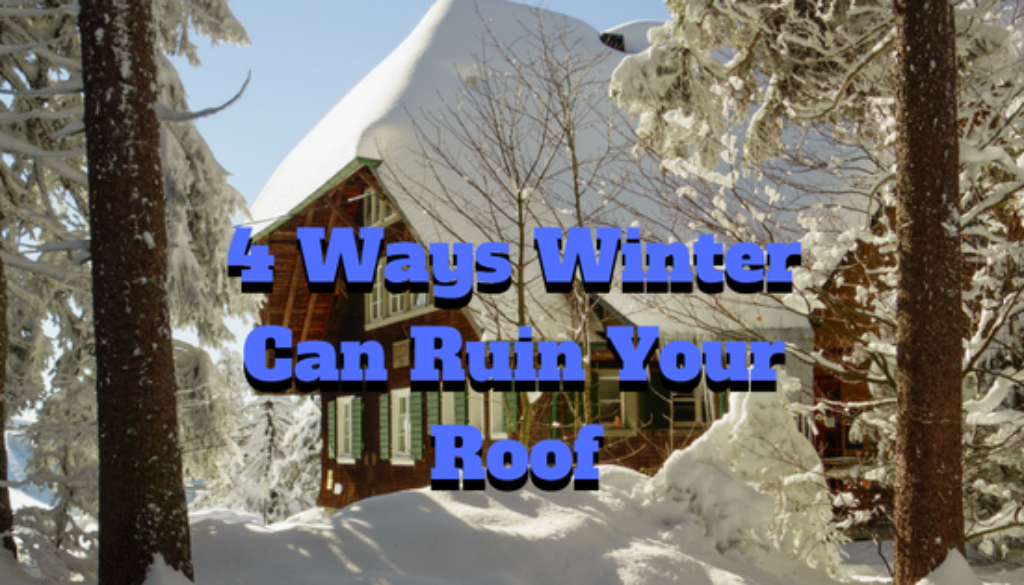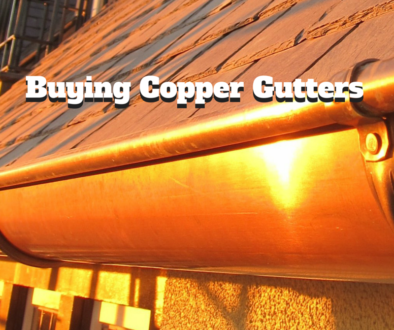4 Ways Winter Can Ruin Your Roof
Winter is here, and that means snow, hot chocolate, and holidays! It can also necessitate some maintenance or repairs, depending on the materials you have chosen for the roof and gutter system. There are quite a few varieties of shingles, but most are made of asphalt. Metal roofing is another popular option. Gutters can be made from wood, steel, aluminum or copper. Let’s take a look at how winter affects these materials and what it could mean to you in the coming months:
Damage From Snow or Fallen Trees
Snow isn’t very heavy when it’s just a few inches of snowfall, but the weight can add up quickly. Asphalt shingles can be damaged from heavy snowfall or other dangers such as falling tree limbs or heavy winds, while metal is often unscathed. Shingles do often come with a warranty, but the manufacturer requires that the shingles be installed to specifications and if the expert who installed them did not follow the often strict requirements the warranty may be void and the costs to repair the damage will fall to you. Metal roofing often comes with a lifetime warranty, and at the very least a longer warranty than shingles.
Extended Cold Conditions
Asphalt has been found to crack when it is exposed to extended cold conditions, and if proper care isn’t taken it will often mean having to replace your roof sooner than expected. Metal roofing is not impacted by these conditions. On top of its resistance to the cold, metal roofing is often more energy efficient making climate control inside your home more efficient. Asphalt shingling requires replacement at least four times during the life of your home compared to a metal roof. Installing a metal roof could mean saving money down the road.
Dents, Dings, and Other Accidents
In addition to heavy snow and wind damage, more damage can occur during repairs and maintenance. A misplaced ladder can dent aluminum gutters, a fallen tree limb could damage or even cause aluminum gutters to fall. Steel and copper gutters are more structurally sound and cost close to the same amount as aluminum gutters. While primary aluminum gutters aren’t as weak as recycled aluminum, their integrity pales in comparison to copper. Copper is also resistant to heat, which makes it ideal for summer weather, and it is also resistant to rust which makes it ideal for wet and stormy weather. Bonus!
Rust and Other Wear and Tear
After the snow melts, water will drip from your roof and into your gutters. Steel is prone to rust which will eventually spread to other parts of the gutter, while aluminum is prone to structural damage if the snow is heavy or if the gutters freeze. Copper gutters don’t rust and are virtually indestructible. While they do cost more to install, they often require little maintenance and often come with an extended warranty. Copper gutters are also beautiful and will last for many years longer than their less expensive counterparts.



